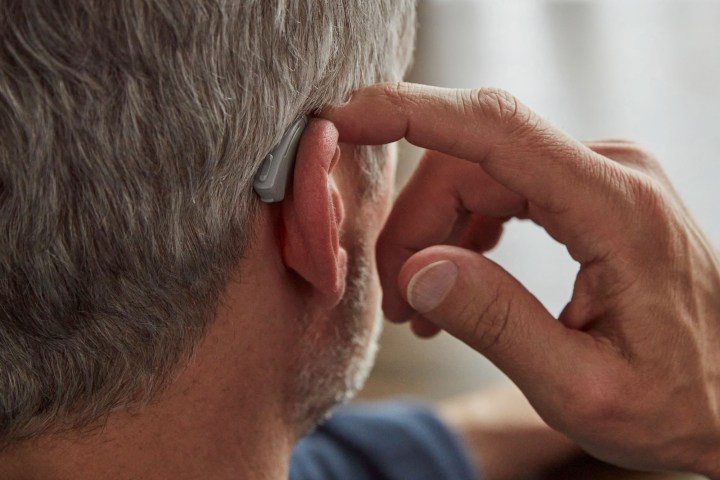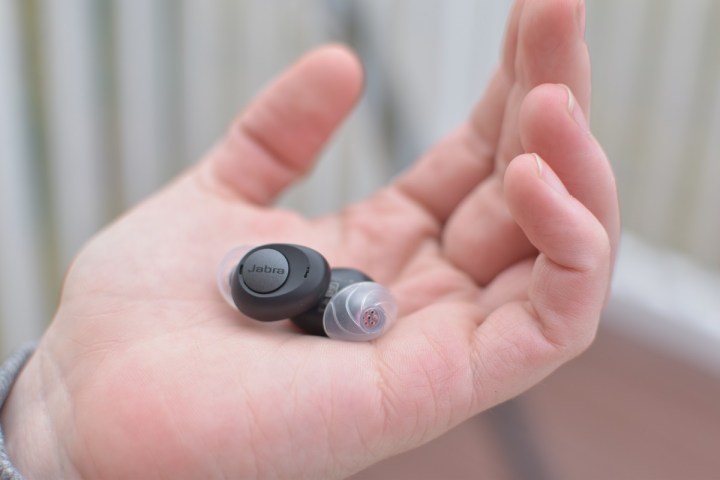The Food and Drug Administration (FDA) has established a new “over-the-counter” (OTC) category for hearing aids. It lets adults with perceived mild-to-moderate hearing loss buy hearing aids from general retailers and online. In the past, these devices were strictly controlled and required a visit to an audiologist.
Scrapping some of the old regulations is intended to increase access to hearing health by eliminating barriers and lowering costs within the hearing aid industry. It should also encourage a number of new entrants, which could significantly increase choice. So what does the new normal look like for hearing aids?
Over-the-counter hearing aids are the new normal

To start with, most hearing aids will fall into the new OTC category. That means adults will be able to buy them from any store, pharmacy, online shop, or other place that sells them. The regulation doesn’t even require age verification. The OTC category will cover a variety of hearing aid designs including all air-conduction models within certain technical specifications. Most importantly, they will not require a visit to an audiologist. If you think you could benefit from a hearing aid, you’ll be able to choose from a variety of self-assessment tests to determine what you need.
Air-conduction hearing aids are currently the most common type of hearing aid. When you think of a hearing aid, you’re probably picturing an air-conduction model. They use little microphones to pick up sound, an amplifier to adjust the sound, and a receiver (or speaker) to deliver the sound into your ear. OTC hearing aids will have limits on how much they can amplify sound.
These limits will still provide enough amplification to treat mild to moderate hearing loss, without being so loud they could actually harm someone’s hearing. They’re intended for people with perceived mild to moderate hearing loss. But let’s talk about “perceived.”
Self-assessment is unreliable
Self-assessment will be incredibly convenient, especially for folks who live considerable distances from their closest audiologist. But there’s reason to be skeptical about how much people can self-assess their own hearing loss. Studies suggest we’re not a reliable source on the matter. Personally, I told my doctor my hearing was normal right before I discovered I have “moderately severe hearing loss.”
People typically can’t assess their degree of hearing loss, and they’re no better at assessing the cause. Problems that cause hearing loss range in severity from excessive earwax to benign tumors. Trying to fix those problems with OTC hearing aids will solve nothing, and worse, it will likely delay treatment. The FDA considers these risks small and rare enough to be borne by the consumer.
The costs of a bad fit

There will be an associated cost, too. Even established hearing aid brands can have problems with feedback or comfort, and customers have relied on good return policies to try several hearing aids until one fits their needs. Eargo, a popular hearing aid company, had a return rate of just over 24% in 2021. Hearing aids have traditionally had long return policies and warranties, but the FDA is not requiring them for OTC hearing aids.
The move toward self-assessment shifts all of this work and cost onto the consumer. You have to assess your own hearing loss from multiple sources, compare products and return policies, fit the devices yourself, follow up with customer service audiologists, and then return the devices when they sound tinny or make your ears itch. You can try another OTC hearing aid — if the process hasn’t turned you off hearing aids altogether.
Personally, I suggest at least calling an audiologist. Audiometry exams can be surprisingly affordable, and at least then you’ll actually know what kind of hearing loss you have.
Audiologists can help
If they’re not visiting audiologists in their practices, hearing aid users will still be seeing a lot of them. OTC hearing aids with generous return policies keep a lot of audiologists on staff, ready to answer any questions. I received emails from Eargo’s customer service audiologist almost daily, and she was really helpful.
In other words, audiologists can address the shortcomings of the app-based hearing tests and hearing test kiosks that are about to pop up all over, telling us how common hearing loss is and inviting us to check our hearing. And for everyone without clinical hearing loss, there are speech-enhanced wearables.
Speech-enhanced hearables?

Now that the FDA has loosened the regulations, you can expect the whole concept of what is — and isn’t — a hearing aid to become a little fuzzier. You will start to see more and more companies that you’re already familiar with from the headphone and earbud audio world start to make inroads under the banner of “speech-enhanced hearables,” a category of product that uses hearing aid tech, but is marketed to help people with no hearing problems at all.
The first out of the gate will be the big hearing aid companies that also own audio brands. GN Store Nord, which owns Jabra, has already started selling the Jabra Enhance Plus, and you can be sure that Sonova-owned Sennheiser won’t be far behind. Promising “enhanced conversations,” these products don’t seem like they’re exclusively health care devices. And what about Apple? Don’t be surprised if the next AirPods feature an even better version of the existing Conversation Boost mode.
Hearing health
For all the potential in these new markets, it’s likely to remain mostly potential. Hearing aid ownership and use is consistently low. The list of reasons includes poor benefits, background noise, uncomfortable fit, and negative side effects. Cost is a factor because if you can’t afford a hearing aid, it doesn’t matter how well it fits. On the other hand, if everyone sounds like they’re speaking to you through a tin can telephone, it doesn’t matter if your hearing aid was affordable — it will still stay in its box.
Now that they’ve fought for access to the hearing aid market, we should expect these consumer hearing businesses to offer a long list of benefits, without discomfort. If they don’t, we can easily tune them out.



